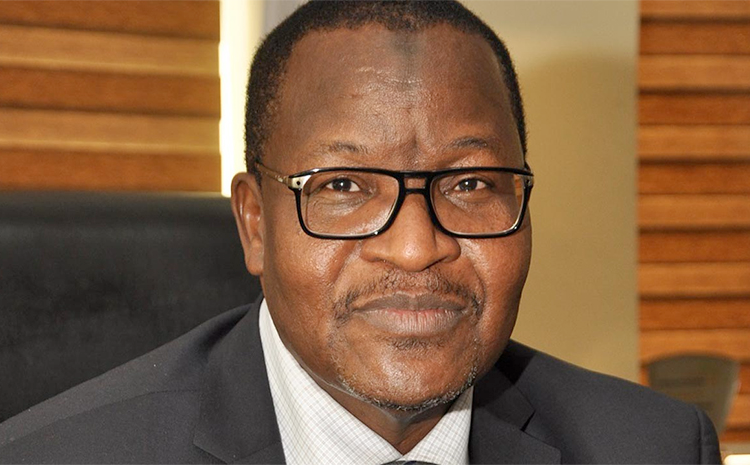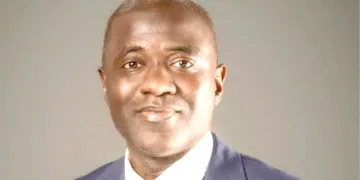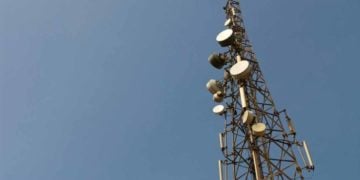Studies have shown that the use of untested, uncertified devices can be a safety hazard for users.
For instance, it has been proven that fake phones have hazardous substances like lead and mercury. These substances have a variety of detrimental health impacts on the ecosystem, especially when they are dumped in landfills.
A study titled „Substandard Cell Phones: Impact on Network Quality and a New Method to Identify an Unlicensed IMEI in the Network“ revealed that counterfeit phones have degraded quality of service for the user and also impact other subscribers.
Additionally, higher dropped call and access failure rates (up to three times more) were observed with substandard cell phones, the study disclosed.
Collaborating the findings of the study, a telecommunication consultant, Patrick Odita, stated that fake phones are a drain on mobile phone networks, reducing network speed and reception for users.
„Some of them have unpredictably short lives, thus prompting the user to incur extra costs during replacement. Although fake phones might sport a tantalizingly cheap price tag, the unforeseen trouble lies in their durability.
„Also, testing has shown that counterfeit and substandard phones experience high levels of signal/call failure in many areas where a genuine phone would be able to make and receive calls. They also expose users to radio frequency radiations, which pose health hazards to the individual,“ Odita posited.
Despite the alarming negative impacts on humans‘ health and the environment, it is estimated that counterfeit devices account for a loss of €45.3 billion in revenue, with 184 million fake smartphones sold each year globally.
In Africa, the study quoted earlier revealed that 10 to 20 percent of mobile phones currently coming into African networks are cloned or counterfeit, with Nokia and Samsung being the favorites for fraudsters.
The Organisation for Economic Co-operation and Development (OECD) reckons that, in 2017, 20 percent of all mobile phones shipped internationally were fake. In 2012, a UAE telecoms operator banned over 18,000 devices from their network, citing fire hazards and leaking batteries. In Uganda, nine million phones were disabled in 2018, and it has been estimated that 40 percent of all active phones in the country were fake prior to the ban.
Mobilethink, a device intelligence platform for mobile operators to drive greater customer lifetime value and offer better smartphone support, also predicted that more than 52 million smartphones activated on African networks will be fake in the next five years.
Africa‘s governments are becoming increasingly concerned about cloned and counterfeit devices due to issues of parallel importing, the risk they present to mobile payment systems, and their use of potentially hazardous materials.
For instance, the company cites the Communications Authority of Kenya (formerly the Communications Commission of Kenya), which said sub-standard components are often used in manufacturing cloned devices. It warned that these have not been put through safety checks and might emit higher than recommended radiation levels.
The federal government of Nigeria, through the Nigerian Communication Commission (NCC), is not resting on its laurels, as the Commission has recently embarked on a campaign against the sale and purchase of counterfeit phones that are not licensed by the Commission.
Recall that the certification of telecom devices used in the telecom sector is one of the mandates of the NCC as enshrined in the Nigerian Communications Act (2003), whose central objective is the „protection of the rights and interests of consumers.“
The executive vice-chairman of the NCC, Prof. Umar Garba Danbatta, frowned at the proliferation of counterfeit handsets in the country, even as he disclosed that the menace of counterfeit and substandard handsets has assumed a global dimension.
Danbatta said the proliferation of counterfeit handsets requires a lot of education on the part of consumers and collaboration with other government agencies to address it.
In this regard, the Commission recently carried out the 5th edition of Market Conversation, a telecom consumer outreach program of the NCC, to sensitize efforts to address the issue.
At the forum, the Commission warned traders and other stakeholders about the negative consequences of selling and purchasing phones and telecommunications gadgets that are not type-approved by the Commission.
According to the NCC, non-type-approved telecom devices are considered to be supplied to the Nigerian market from grey sources and are known to degrade the quality of services in the network.
Dr. Emilia Nwokoro, Deputy Director of the Consumer Affairs Bureau, who spoke for Danbatta at the Forum, said there is a need to sensitize traders at the market about the implications of trading in substandard products, as they may face the risk of arrest and prosecution when found selling non-type-approved devices.
„The essence of coming here today is to enlighten the traders on the dangers of selling non-type-approved devices. The NCC established procedures for certifying telecom products sellable and usable in Nigeria, and that explains the Commission‘s efforts to raise awareness to ensure that substandard products are not circulated in any market in Nigeria,“ she said.
She informed them that the procedure for the approval of telecom devices has been established by the Commission, and all type-approved devices have been published on the NCC website for public and user reference. Therefore, traders should take advantage of this information to identify type-approved against non-type-approved phone devices.
The Chairman of the GSM Village Market in Abuja, Macdonald Ajuogu, said the market union has a task force that monitors the types and standards of devices sold there, and that the association has also put measures in place to deal with any member that goes against their rules.
„Normally, we have a platform in the market whereby anybody that deals with any phone in the market is registered with the union, and we also have a task force that always checks on any product that is being sold in the market, including computers that are sold in the GSM village.
Recall that the Commission has approved 2,155 phones for sale in the country as of July 2023, with phones made in China dominating the market.
Though there are brands from countries including Finland, France, America, India, Japan, the Philippines, Taiwan, South Korea, South Africa, and the UAE, Chinese brands have continued to flood and dominate the Nigerian market with over 300 models.
Some of these phone brands include Tecno Mobile, Nokia, Wiko, Samsung, Panasonic, Huawei, Asus, Apple, HP, Google, Gionee, Alcatel, Oppo, among others.
The approved devices, which are of different brands and models, are those that have been tested by the telecoms regulator and found to meet the applicable type approval standards required to allow them to be sold to consumers in Nigeria.
Ajuogu, however, thanked the NCC for devoting time to come and sensitize the traders not to sell or purchase non-type-approved devices and promised that the traders would strive to abide by the prescriptions of the commission by cross-checking with the NCC‘s list of certified and type-approved devices to avoid being sanctioned.




